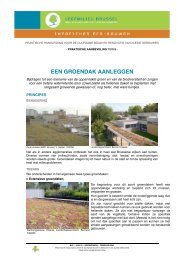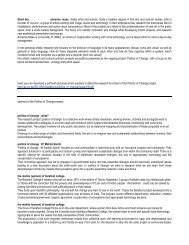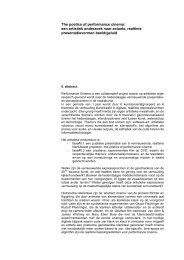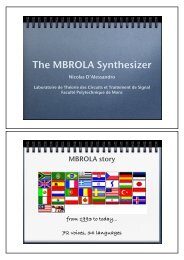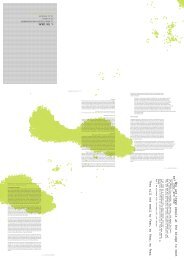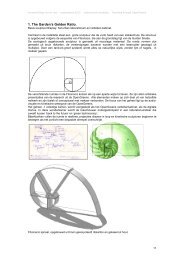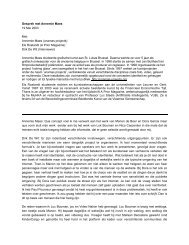MANIFESTO
MANIFESTO
MANIFESTO
Create successful ePaper yourself
Turn your PDF publications into a flip-book with our unique Google optimized e-Paper software.
Section 7<br />
WATER CONSERVATION IS CENTRAL TO SUSTAINABLE AGRICULTURE<br />
Industrial agriculture has led to intensive water use and increased water<br />
pollution, reducing availability of fresh water. Drought and water scarcity<br />
in large parts of the world will increase due to changes in climate. Reducing<br />
intensive water use in agriculture is a vital adaptation strategy. Ecological and<br />
organic farming reduces demands for intensive irrigation while enhancing soil<br />
capacity for retention of water while improving water quality.<br />
Industrial chemical agriculture has contributed to a water crisis both through<br />
intensive water use and through pollution of surface and ground water through<br />
agrichemical pollution.<br />
In tropical countries, intensive irrigation has caused additional problems of<br />
water logging and salinization, putting fertile lands out of food production.<br />
Climate change will increase water stress in many parts of the world. Australia<br />
is already suffering from an extended drought, and the Darfur conflicts between<br />
pastoralists and settled agriculturalists have been linked to depleting water<br />
resources of Lake Chad.<br />
The destruction of the tropical rainforests in Brazil for soya and in Indonesia for<br />
palm oil is also disrupting the local hydrological cycle created by the rainforests.<br />
Global warming is triggering the melting of glaciers that recharge water of major<br />
river systems. More than 5,018 glaciers of the Himalaya are being impacted.<br />
Pindari glacier is retreating at 13 metres a year, and the Ganges glacier at 30<br />
metres annually. In 13 years it has receded by one-third of a kilometre. In two<br />
decades Himalayan glaciers will shrink from 500,000 sq. km to 100,000 sq. km.<br />
In a few decades there will be no glacial melt in the Himalayan Rivers in the peak<br />
of summer leading to a further aggravation of drought. As a result per capita<br />
availability of water will drop from 1800 cubic metres to 1000 cubic metres.<br />
Reducing water waste and pollution has become a survival imperative.<br />
Ecological and organic farming can contribute to reduction in water use by<br />
increasing soil moisture conservation through increasing the organic matter<br />
content of soils. Organically farmed soils are better adapted to weather<br />
extremes because they make the soil sponge-like, allowing it to retain more




